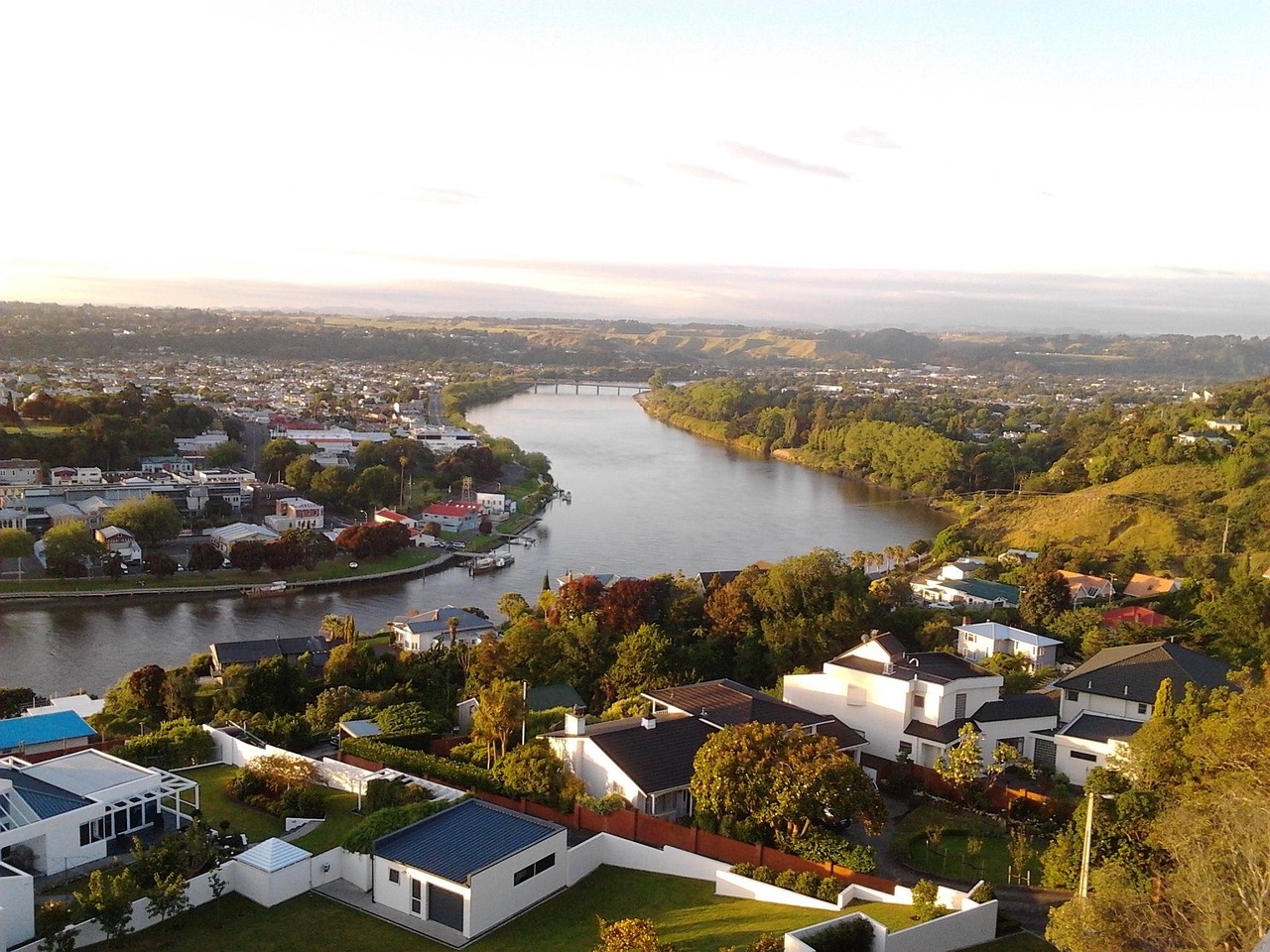
Whanganui (Manawatū)
Whanganui is a charming small North Island city with a rich cultural heritage. It is surrounded by unspoiled nature and offers a relaxed, laid-back provincial lifestyle. With a population of around 42,500, Whanganui is the second-most populous urban area in the Manawatū-Whanganui region. The city is known for its picturesque river, New Zealand's longest navigable waterway.
Local Iwi and Cultural Heritage
Whanganui is the ancestral home of Te Āti Haunui-a-Pāpārangi and other Whanganui Māori tribes. The city has a strong Māori presence, and the local iwi play a significant role in the community.
Climate
Whanganui enjoys a temperate climate with warm summers and mild winters. The average summer temperature is around 20°C (68°F), while winter temperatures average around 10°C (50°F). The city receives moderate rainfall throughout the year, making it an ideal place for outdoor activities.
Housing Affordability
Whanganui offers affordable housing options compared to larger cities in New Zealand. The median house price in Whanganui is significantly lower than in Auckland or Wellington, making it an attractive option for those looking to buy a home. The city's housing market is stable, with a good selection of properties available for purchase or rent.
Primary Industries
Whanganui's economy is closely tied to its fertile farming hinterland. Agriculture, forestry, and fishing are the primary industries in the region. The city also has several manufacturing and processing plants, including freezing works, woollen mills, and phosphate works.
Educational Opportunities
Whanganui offers a range of educational opportunities for residents. The city has several primary and secondary schools and tertiary institutions, such as the Whanganui Regional Community Polytechnic. The Polytechnic offers a variety of courses and programs, including trades, business, and health-related studies.
Sporting and Leisure Activities
Whanganui is a haven for outdoor enthusiasts. The city boasts numerous parks and gardens, including the Bason Botanic Gardens and Westmere Lake. The Whanganui River is a popular kayaking, fishing, and boating destination. The city also has a vibrant arts and culture scene, with several galleries, theatres, and community events throughout the year.
Pros and Cons of Emigrating to Whanganui
Pros
- Affordable Housing: Lower median house prices compared to larger cities.
- Natural Beauty: Scenic river, parks, and gardens.
- Cultural Heritage: Rich Māori history and strong community ties.
- Outdoor Activities: Ideal for kayaking, fishing, and boating.
- Educational Opportunities: Range of schools and tertiary institutions.
Cons
- Smaller Job Market: Limited employment opportunities compared to larger cities.
- Public Transport: Limited public transportation options.
Whanganui is a hidden gem that offers a high quality of life, affordable housing, and a strong sense of community. While it may have some limitations, the benefits of living in this beautiful city make it an attractive option for those looking to emigrate to New Zealand.
Psychologist jobs become available in healthcare, justice, and education sectors. Psych-Recruitment will help you evaluate whether Whanganui is the right location for you.


